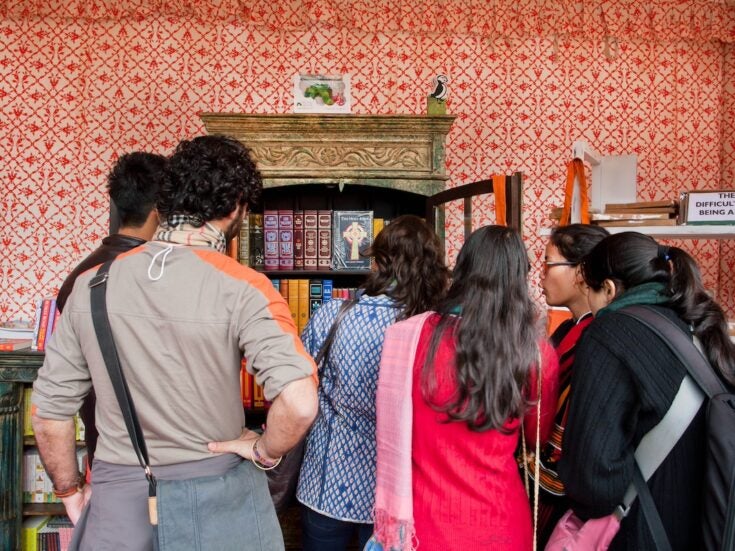
It has been extraordinary to walk around London without people, but wouldn’t city dwellers rather be in the country or by the sea?
Anyone noticed the weather? This is supposed to be the staple of British conversation but during lockdown it’s gone unremarked. But this must have been the best spring ever.
Usually the doom-hungry media would have broadcast farmers standing in cracked fields, bemoaning the loss of this year’s winter wheat. There has been no rain to speak of since Christmas. For agriculture, it’s terrible – expect price rises. For the rest of us, except when shopping for vegetables, it’s bliss.
Think of how grim lockdown would have been if it had rained. As it is, there has been a bit of a holiday atmosphere. Where have my suits gone? No idea. In storage somewhere. I don’t have to wear formal clothes for a Zoom meeting. Shorts only for me. Since our chosen place of lockdown has been central London, resort wear of that kind isn’t my usual style.
I haven’t had to worry. Nobody can see my knees. But the sunshine also brought on a degree of yearning. I have just finished completing the proofs of a book, begun after last year’s fire at Notre-Dame, called The Real Crown Jewels of England. Pictures of Notre-Dame in flames caused an outpouring of grief around the world. What had seemed immutable looked as though it might disappear. So I had the idea of asking which places in England would be similarly mourned if they were destroyed overnight.
Since Covid-19, it has been a journey of the mind. I haven’t physically been able to revisit them. I don’t need to, really: there are 100 places on my list and I know them all. But it would have been nice. As Chaucer said, spring is the time for pilgrimages. I don’t object very much to having missed out.
London has had its compensations. It has been extraordinary to walk around it without people. What a once-in-a-lifetime privilege. To be able to see buildings without being run down by a bus or knocked off the pavement by some idiot on a mobile phone. To breathe unpolluted air, to go to sleep without the noise of cars, planes or roisterers emerging from the pub.
But I can’t say that this has been the city’s hour. It hasn’t. The gainer of this crisis has been the countryside. I see it on Instagram. While city dwellers could hardly venture outside, mates in the country were cooking barbecues. They had their gardens, their runs around country lanes, fridge freezers bulging with food. Local suppliers teamed up and found innovative ways of delivering their artisan cheeses and charcuterie to the door.
The countryside is resilient. Used to working with animals, rural folk have never been clock-watching slaves of routine. They take challenges as they come and adapt. Until lockdown, this had been London’s century.
Here was a world city, expensive but good to live in, bursting with energy day and night, offering fabulous experiences of every kind – not just theatre, music and restaurants, but also increasingly street food, river walks, festivals.
The Victoria Line ran at 90-second intervals: part of a mass transit system that kept people circulating like methane molecules in a cowshed. It all depends on people, thousands of them. Millions. Cramming together.
Now one hears that theatres will be closed for a year – and who will feel confident about going back when they reopen? Nightclubs won’t be much fun if social distancing is maintained. Zoom has shown you can work from anywhere. Bosses see they can keep an eye on employees as they work remotely and are eyeing up all the savings they could make if they only maintained a few meeting rooms, rather than fully-fledged offices. Workers won’t happily go back to long commutes.
City dwellers have been forced to see that home is more important than coffee shop, and perhaps a small London flat with no outside space isn’t so great. Would they rather be in the country or by the sea?
Healthy air, lots of exercise. I notice that all young people with parents in the countryside have gone home. They might be harbingers of change. Britain is going to rebalance.
Image: “Gezicht op een veld met hyacinthen aan de Ramplaan te Overveen, Adolphe Burdet, 1907 – 1930”by Adolphe Burdet is licensed under CC0 1.0
Read more
Post-Covid-19, retail faces a new world
Why Lucknam Park is my ideal lockdown destination
This is a time for reflection, not ‘revenge spending’







